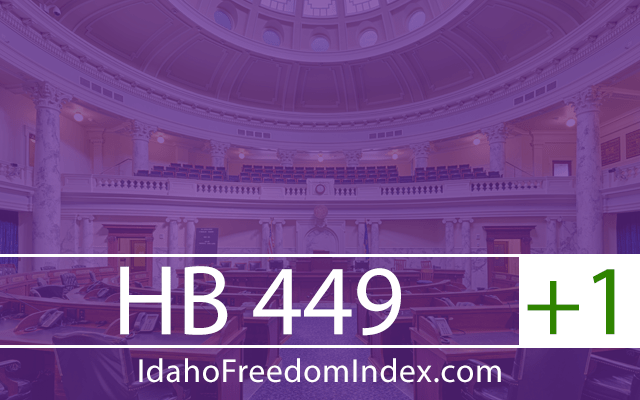


Bill description: HB 449 would exempt the sale of precious metals from the capital gains tax.
Rating: +1
Does it directly or indirectly create or increase any taxes, fees, or other assessments? Conversely, does it eliminate or reduce any taxes, fees, or other assessments?
The state of Idaho charges a capital gains tax when individuals sell investments that have appreciated in value. However, the state does not charge this capital gains tax on the “sale” of traditional currency, no matter how much it might have inflated.
Precious metals in bullion form are a constitutional form of money and should be treated as such when it comes to taxation.
HB 449 would eliminate the state capital gains tax on the sale of precious metals. The fiscal impact of this change would depend on how many investors sell their metals and the fluctuation in the metals market value. The Fiscal Note for HB 449 estimates the sellers of precious metals could save up to a total of $110,000 if the value of their precious metal has appreciated. However, if their metals value has decreased, this could result in an increase in tax collections for the state (if the value were to decrease it could be taken as a deduction for capital losses, the opposite side of a capital gains tax).
Many purchasers of precious metals put their money in this form of currency to avoid the loss of U.S. dollar purchasing power due to inflation. The changes that HB 449 makes would ensure that individuals are not penalized for choosing to put their money in a more secure form of currency than just United States Federal Reserve notes.
(+1)


